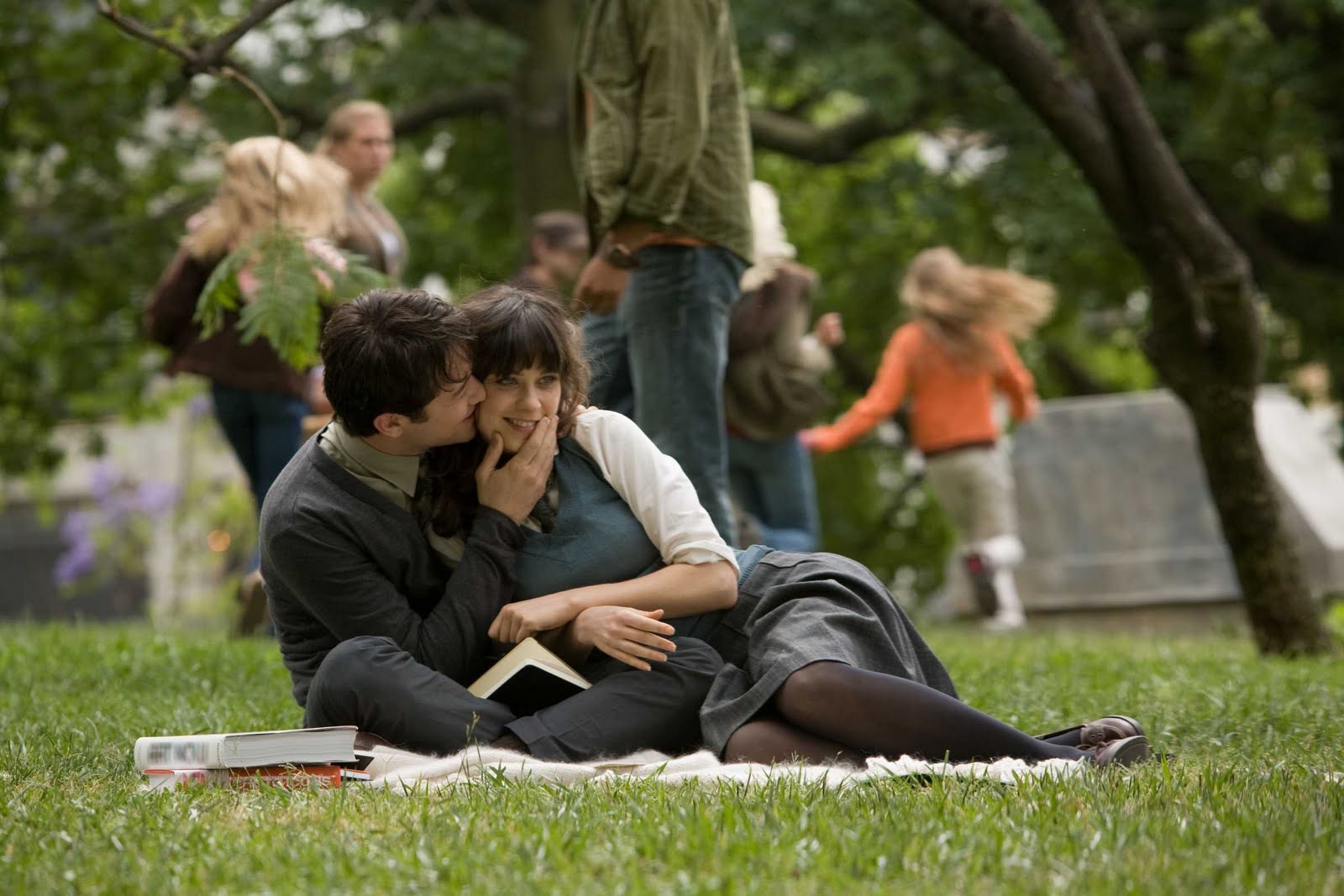In high school, I met a girl at a Cincinnati city-wide church youth rally. I was taken with her, I pursued her and, I thought, she responded. Since we lived in opposite parts of the city, our relationship was long distance except for our one date (a telling detail) when we went to see a performance of Jesus Christ, Superstar at Cincinnati’s Music Hall.
A few days later I called her on the phone. We talked, sort of. There would be longish bits of conversation on my part followed by extended silences on her part. Finally, sensing something going down, I said “What are you doing?”
“Algebra.”
That was, to put it mildly, cold. Clearly I was beginning to learn what many guys learn at that age: girls are evil.
If you are alert at the beginning of the new, and strangely good, movie (500) Days of Summer, you will sense that a similar experience must lie behind it.

As the narrator tells us, this is not your typical movie love story. It is, rather, a story about love. To tell you that by the end of the 500 days that Tom Hansen (Joseph Gordon-Levitt) spends with Summer Finn (Zooey Deschanel), the two have parted ways is not to ruin the film. We find that out immediately.
This is not your typical romantic comedy. Here, boy meets girl, and girl dumps boy. Who wants to see that? The romantic genre is an escape. We expect happily ever after. This story more real than fantasy, so real for some that it may be painful. (My wife said as we drove away from the theater, “That happened to me.”)
And yet, the story’s realistic elements are so well balanced with humor and creativity that it is not only bearable, but at times fun. My wife pointed out the the film made her sad and made her angry, but as well made her laugh and made her happy.
One leaves the film not quite knowing what to think. Personally, I wanted to run Zooey Deschanel through with a sharp object, behavior unbecoming a pastor, to be sure. I mean, love must mean never having to say “I’m sorry” because to my recollection Summer Finn never does.
Does the film encourage or discourage romance? Are we to sympathize with Tom’s struggle, or are we to see his foolishness? Is romance a reality or an illusion? Does the movie encourage casual sex or is it showing the inherent perils of it? What are we to think?
Clearly the first 30 seconds of the film set the tone. The final 30 seconds redeem the whole. What lies between makes me glad that I’m enjoying this on film, and no longer for real.
